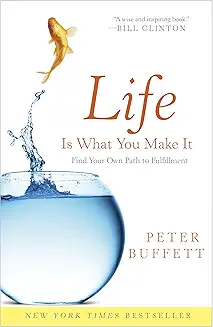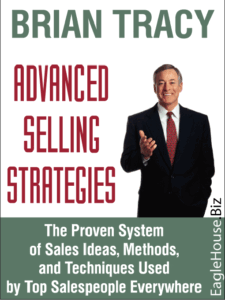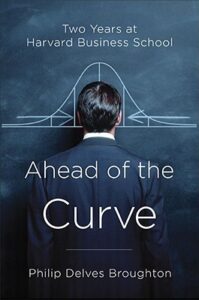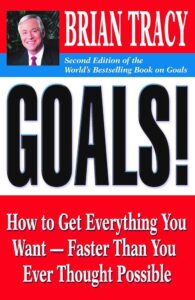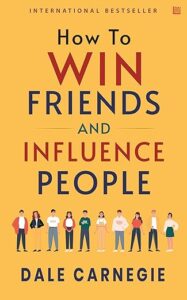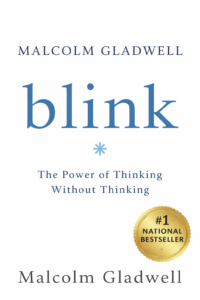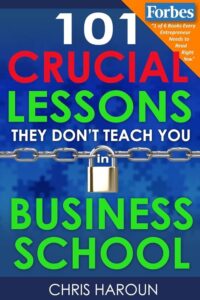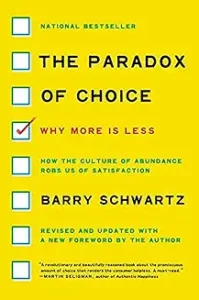Summary
🌟 Chapter 1: Normal Is What You’re Used To
📖 Mini-story recap
Peter Buffett reflects on being seen as “normal” despite being the son of Warren Buffett. He credits his upbringing filled with love, trust, and strong values—not money—as the real foundation of his character.
🧠 Key insight / mindset shift
“Normal” isn’t about wealth or status—it’s about being emotionally grounded and socially connected. True wealth lies in values, not valuables.
✅ Practical steps / instructions
- Build your life around trust, not fear.
- Promote tolerance by listening to different perspectives.
- Learn actively, not just through formal education, but through human stories and experiences.
🔑 Pointers for action
- Replace judgment with curiosity.
- Spend quality time with family to build emotional security.
- Embrace diversity—it’s not just morally right, it enriches your life.
🌟 Chapter 2: No One Deserves Anything
📖 Mini-story recap
Buffett discusses the randomness of birth and privilege. He emphasizes that no one chooses their beginnings, so no one is entitled to boast or feel superior based on inherited status.
🧠 Key insight / mindset shift
Stop focusing on what you “deserve.” Instead, focus on becoming worthy of the luck you’ve received by using it to serve others and grow meaningfully.
✅ Practical steps / instructions
- Acknowledge your privileges without guilt—transform them into gratitude and responsibility.
- Avoid entitlement thinking; develop humility and a strong work ethic.
- Don’t substitute money for love or meaning.
🔑 Pointers for action
- Reflect on how you can earn your blessings rather than defend them.
- Don’t enable your children with too much comfort—teach them to create their own path.
- Trade comparison for contribution.
🌍 Chapter 3: The Myth of the Level Playing Field
📖 Mini-story recap
Buffett confronts the comforting illusion that everyone starts life with the same opportunities. He reflects on disparities—between countries, communities, and individuals—and how privilege is unevenly distributed, like kids from a Connecticut suburb vs. an African village.
🧠 Key insight / mindset shift
The playing field isn’t level—and pretending otherwise is both naive and dangerous. Recognizing this truth is the first step toward change and using our position responsibly.
✅ Practical steps / instructions
- Don’t deny privilege—acknowledge it.
- Use your advantage to lift others rather than hoard it.
- Develop “moral imagination”: See life from another person’s perspective.
🔑 Pointers for action
- Engage in causes that promote fairness (education, health access, mentorship).
- Be grateful, not guilty—and let that gratitude drive meaningful action.
- Teach your children empathy through exposure, not lectures.
🔀 Chapter 4: The (Mixed) Blessing of Choice
📖 Mini-story recap
Buffett recalls being a confused teenager with no clear passion. Photography gave him early direction, but even that wasn’t enough to ease the anxiety of too many choices.
🧠 Key insight / mindset shift
Too many choices can paralyze instead of liberate. Freedom isn’t about doing everything—it’s about knowing what’s worth doing.
✅ Practical steps / instructions
- Don’t chase all options—commit to one path and explore it deeply.
- Recognize the difference between real curiosity and distraction.
- Embrace boundaries—they don’t trap you, they guide you.
🔑 Pointers for action
- Make peace with not knowing everything in advance.
- Use small successes as directional signs.
- Simplify your options by asking: What feels both meaningful and energizing?
🎯 Chapter 5: The Mystery of Vocation
📖 Mini-story recap
During a performance with his father, Peter realizes how winding his journey to music has been. From piano lessons to multiple restarts, his vocation emerged slowly and subtly—not from a lightning bolt of certainty.
🧠 Key insight / mindset shift
Vocation isn’t always obvious or immediate. It often grows from lived experience, not abstract clarity.
✅ Practical steps / instructions
- Don’t rush it—let your calling unfold through experimentation.
- Accept false starts—they refine your direction.
- Look for patterns in what energizes and fulfills you.
🔑 Pointers for action
- Track what you keep returning to—even after quitting.
- Seek your own voice, not others’ expectations.
- Redefine vocation as the place where your talents and temperament meet life’s needs.
⏳ Chapter 6: Buying Time
📖 Mini-story recap
Buffett shares how a modest job and years of unpaid tinkering gave him the patience and perspective to recognize his lucky break when it came. He emphasizes the power of using time well—especially early in life.
🧠 Key insight / mindset shift
Time is the most valuable currency of growth. You can’t buy fulfillment—but you can invest in it patiently.
✅ Practical steps / instructions
- Use “in-between” time to deepen skills and self-awareness.
- Resist the urge to rush outcomes—great things unfold at their own pace.
- Practice humility: you don’t know what’s next, so stay open.
🔑 Pointers for action
- Don’t fear “wasted” time—it may secretly be preparation.
- Let passion guide your practice, not prestige.
- Be willing to “buy time” by choosing experiences over income.
🌟 Chapter 7: Don’t Just Find Your Bliss—Do Your Bliss
📖 Mini-story recap
Finding your passion is step one. But if you want that passion to support your life, you must figure out how to translate it into service, contribution—and yes, income.
🧠 Key insight / mindset shift
Passion without practicality is a daydream. Bliss becomes real when you link what you love to what the world values.
✅ Practical steps / instructions
- Ask: Where does what I love intersect with what others will pay for?
- Let go of the fear of “selling out”—offering your gift doesn’t diminish it.
- Think of your bliss as something to build into life, not escape into.
🔑 Pointers for action
- Be willing to adapt your dream so it meets a real-world need.
- Don’t treat money as dirty—it’s a tool to fuel your purpose.
- Collaborate—your bliss may thrive better with others’ input.
🔍 Chapter 8: Portals of Discovery
📖 Mini-story recap
Buffett acknowledges that mistakes are part of life—not just for geniuses like Shakespeare, but for all of us. Whether due to impatience, ignorance, or fear, our blunders often become doorways to growth and learning.
🧠 Key insight / mindset shift
Mistakes aren’t failures—they’re stepping stones. They are “portals of discovery,” leading us closer to our true path when we reflect on them honestly.
✅ Practical steps / instructions
- Accept and study your mistakes instead of hiding from them.
- Reflect on where your actions diverged from your values.
- Use regret as fuel for recalibration, not shame.
🔑 Pointers for action
- Keep a “lessons learned” journal.
- Ask: What did this mistake teach me that success never could?
- Talk about your missteps—it invites authenticity and human connection.
💭 Chapter 9: Be Careful What You Wish For…
📖 Mini-story recap
Using the story of King Midas and personal examples, Buffett illustrates how getting what we wish for can sometimes backfire. A young woman’s denied law internship turns out to be a blessing that redirected her toward environmental justice.
🧠 Key insight / mindset shift
Not all wishes are wise. The fulfillment of fantasy can blind us to reality—and a blocked wish can open better paths.
✅ Practical steps / instructions
- Distinguish between what you want and what will truly fulfill you.
- View unmet desires as opportunities to explore alternatives.
- See wish fulfillment as a beginning, not an endpoint.
🔑 Pointers for action
- Reevaluate your goals—do they reflect you or external pressures?
- Write down what you’ve learned from your biggest “unfulfilled” wish.
- Be open to unexpected detours—they might be destiny in disguise.
🏆 Chapter 10: What We Mean When We Say “Success”
📖 Mini-story recap
Buffett critiques our cultural obsession with success—how we equate it with wealth, accolades, or fame. He urges readers to redefine success based on values, contribution, and personal alignment.
🧠 Key insight / mindset shift
True success isn’t about how the world rewards you—it’s about whether your work aligns with your unique purpose and inner compass.
✅ Practical steps / instructions
- Write your personal definition of success—don’t borrow it from society.
- Focus on process and passion, not payoff.
- Measure impact, not income.
🔑 Pointers for action
- Ask: “Would I still do this if no one noticed?”
- Resist the urge to chase what’s fashionable—honor what’s meaningful.
- Teach success as substance, not spotlight.
💰 Chapter 11: The Perils of Prosperity
📖 Mini-story recap
Prosperity isn’t the enemy, but it carries risks—especially for affluent families trying to instill values. Buffett warns that wealth can distance children from gratitude, identity, and connection to common humanity.
🧠 Key insight / mindset shift
Prosperity should be a platform for values—not a barrier to them. Wealth is safest in the hands of those who remain grounded.
✅ Practical steps / instructions
- Teach children to earn their own satisfaction.
- Avoid shielding them from reality—exposure builds empathy.
- Use wealth to cultivate connection, not separation.
🔑 Pointers for action
- Share stories of struggle, not just success.
- Engage in community experiences that build humility.
- Frame money as a means, not a marker of worth.
🤲 Chapter 12: The Gentle Art of Giving Back
📖 Mini-story recap
Buffett explores giving not as charity, but as an essential life phase. He redefines philanthropy as “love for humanity,” accessible to all—whether through mentoring, time, kindness, or money.
🧠 Key insight / mindset shift
Giving isn’t a luxury of the rich—it’s a natural extension of a life well-lived. True giving arises from connection, not obligation.
✅ Practical steps / instructions
- Start small: help, teach, volunteer, listen.
- Reframe “giving back” as sharing what life has given you.
- Give with authenticity, not performance.
🔑 Pointers for action
- Find your unique way to serve—your time and talent are valuable too.
- Teach giving as a joyful responsibility, not a noble sacrifice.
- Embrace the paradox: you gain most by what you give away.
🚀 Epilogue: Begin It Now
📖 Mini-story recap
Buffett closes with a powerful quote (often attributed to Goethe): “Whatever you can do, or dream you can do, begin it. Boldness has genius, power, and magic in it.” He reflects on the mysterious, transforming power of commitment—how it activates unseen forces and draws strength from within.
🧠 Key insight / mindset shift
The real magic in life is not talent or luck—it’s commitment. Until you commit, you’re stuck in hesitation. But once you do, life aligns around you in ways you could never imagine.
✅ Practical steps / instructions
- Don’t wait for clarity—start with commitment and let clarity follow.
- Acknowledge your fears but act anyway.
- Use commitment as a tool to unlock creativity, resourcefulness, and growth.
🔑 Pointers for action
- Take a step—no matter how small—toward what matters to you.
- Let go of the illusion of the “perfect moment.” Start now.
- Every time you feel doubt creeping in, revisit this mantra: “Begin it now.”
💡 Final Words
Peter Buffett’s message is timeless and universal: “Your life is yours to create.”
It doesn’t matter where you started—it matters what you do next. You are not the product of your conditions, but the result of your choices and commitment. So don’t just read about it. Live it. Boldly. Today.


